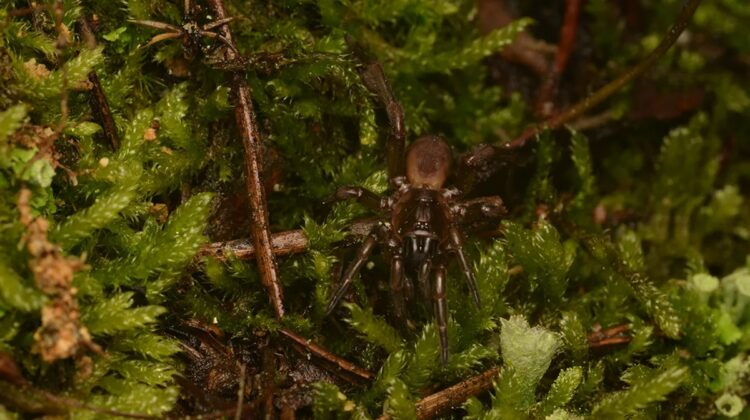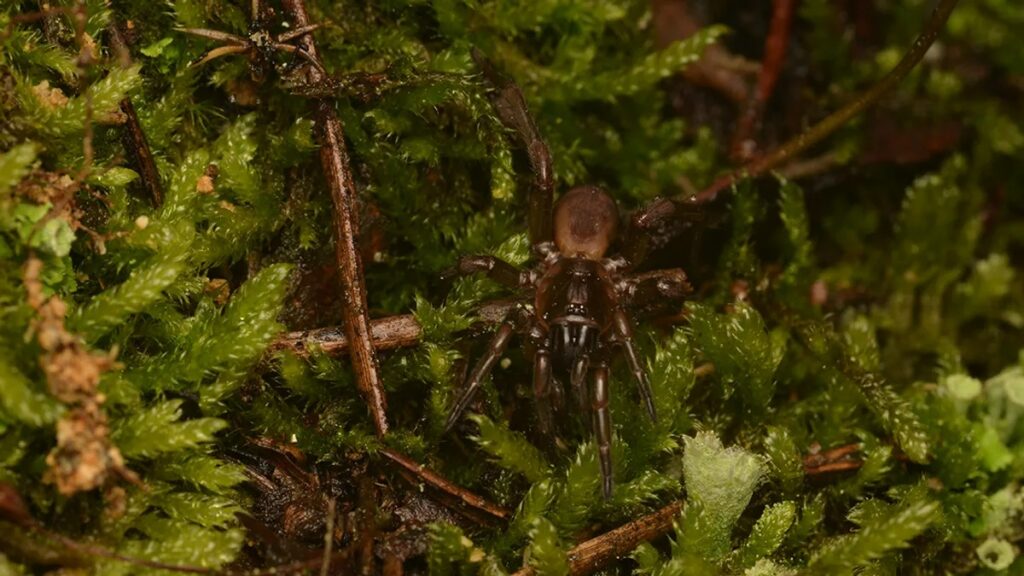
The world of arachnids has witnessed another remarkable rediscovery, this time in the forests of Portugal. The elusive Fagilde’s trapdoor spider (Nemesia berlandi), lost to science for an astonishing 92 years, has been found by the team at Re:wild’s Search for Lost Species project.
Endemic to Portugal, this tap-dancing spider was first documented in 1931 by the pioneering entomologist Amélia Bacelar. Unfortunately, the only known examples of this species were consumed by flames in a museum fire in 1978. Bacelar’s limited research focused solely on female spiders, leaving the male members a mystery.

Image Credit: © Sérgio Henriques – Re:wild
Spearheading the expedition, Sérgio Henriques, invertebrate conservation coordinator at the Global Center for Species Survival, led his team in a search around the village of Fagilde between August 2021 and November 2023. The Fagilde’s trapdoor spider differs from its counterparts, residing in horizontal burrows beneath leaf litter.
To entice the elusive males, the team constructed artificial spider hiding spots. The nickname “tap-dancing” stems from the intricate courtship ritual where male spiders drum or tap dance on the female’s burrow door. If she approves, the door opens, and mating occurs.
The team’s persistence paid off in 2021 when they unearthed a 10-centimeter burrow housing a female Fagilde’s trapdoor spider and ten spider offspring. The discovery mirrored Bacelar’s find 92 years prior, affirming the uniqueness of the species.
DNA testing, facilitated by the spider’s ability to regrow detached legs, confirmed the long-lost identity. Christina Biggs, lost species officer for Re:wild, expressed excitement over the first rediscovery for the Search for Lost Species in Europe. As the Fagilde’s trapdoor spider resurfaces, questions arise about its future in an area increasingly threatened by wildfires due to climate change.
Henriques engages the local community in spider conservation efforts, fostering a sense of responsibility. Local sightings are reported, and a bakery even celebrates the spider with themed cupcakes. The newfound community involvement has unveiled a completely novel species nearby, offering hope for overlooked and undiscovered species in the intricate tapestry of nature.

Leave a Reply